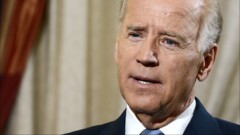Democratic candidates for the presidency have offered a variety of different ideas, but have appeared to coalesce around a handful of common concepts. To get a sense of where they stand, the individual candidates' positions on a number of changes for individual taxes are laid out below.
For more, learn about their
















